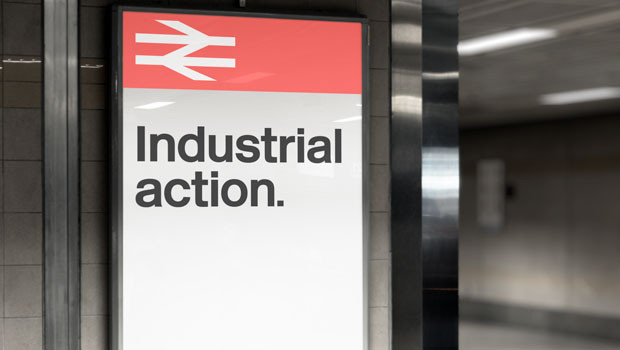New strike laws set to ensure 'minimum service levels'

New laws aimed at castrating the ability of unions to cause widespread disruption look set to be brought forward by the government, it was revealed on Thursday.
The laws would “maintain a basic function and deliver minimum safety levels”, according to the Department of Business, Energy and Industrial Strategy (BEIS).
Sky News said they would initially apply to fire, ambulance and rail services, but could be extended to other sectors if voluntary agreements could not be met with Whitehall.
It said the legislation would be put in front of MPs in the Commons “in the coming weeks”, with the government set to consult on what so-called “minimum service levels” would look like.
Previous reports suggested border security, education, health and nuclear power workers could also be covered by the new rules, but BEIS said it was expecting to reach “voluntary agreements” with the unions covering those sectors.
“[We] would only look to consult on minimum safety levels should these voluntary positions not be agreed,” the department was quoted by Sky as saying.
It was also revealed that unions could face legal action if they did not abide by the to-be-determined minimum service levels.
“Trade unions will be bound to follow this legislation, and will risk the employer bringing an injunction to prevent the strike from taking place or seeking damages afterwards if they do not comply with their obligations.”
The new rules come amid an ongoing winter of industrial discontent, with workers in the transport, health, education and civil service sectors walking out at various points throughout January.
On Thursday, train drivers represented by the Aslef union were participating in a national day of strike action, while bus workers at Abellio represented by Unite were walking off the job in south and west London.
A strike of Driver and Vehicle Standards Agency staff represented by the PCS union was also continuing in London, the south east and south west of England, and Wales.
Looking at the rest of the week, railway workers represented by RMT were resuming their action on Friday, while National Highways staff that are members of PCS would strike in the East Midlands and the eastern region and the DVSA strike would continue.
Other strike action taking place over the rest of the month was set to include action by members of the Educational Institute of Scotland, ambulance workers represented by both GMB and Unison, Prospect members who work on London’s new Elizabeth line.
Nurses represented by the Royal College of Nursing, Unison members of Environment Agency staff, and members of the GMB union working in Amazon’s Coventry warehouse will also walk off this month.
Reporting by Josh White for Sharecast.com.